Theatre and Meaning at Kakuma Refugee Camp
For almost two years, I have been working on a refugee-related theatre project: a production of As You Like It as a refugee story. Over the course of that work, I have connected with many refugees and asylees who now live in New York. But at a certain point, it became clear to me that in order to truly grasp the story I am trying to tell, I needed to leave the country to see how refugees are living before they get resettled. After many months searching for opportunities, I connected with Film Aid International, a film/arts focused NGO. And so in early May 2016, I found myself in Kakuma Refugee Camp in the northwest corner of Kenya, preparing to teach a workshop to forty refugee theatre artists.
Before I talk about the workshop, I should explain something about the camp. Founded by the UN High Commission on Refugees in 1991 to take in people displaced by the Sudanese civil war, Kakuma now has a population of approximately 200,000 people, with several hundred more arriving every week. Some of them come from very far away; at least two thirds of the people in my workshop were from Congo, a distance of as much as 2000 miles. They live in what amounts to a medium-sized city with no infrastructure: no electrical grid, no plumbing or sewage, just communal water taps and pit latrines; only one paved road (the one that leads to the UN compound), no public transportation. The refugees live in houses built from cement blocks, mud walls, and corrugated metal roofs. No windows, no ventilation, no electricity or plumbing. The camp was built as a temporary solution to the crisis of displacement from a series of wars, but there is nothing temporary about how long people are there. There is a generation of children born in the camp, still living in the camp as adults, having children of their own.
My time in Kakuma was a crash course in joy: how it’s not connected to the absence of hardship, how it can emerge almost instantaneously from someone who has seemed to be in the darkest place moments before. The depth and extremes of emotion, the profound, turn-on-a-dime shifts I saw in my workshop felt like how things work in Shakespeare.
I had been told by Film Aid that four theatre groups had emerged in the camp recently. Each group was invited to send ten people to my workshop. The people in my workshop were from a range of countries: Congo, Sudan, South Sudan, Somalia, and Burundi. There were an equal number of men and women, and five women brought babies with them. Most were in their 20s, but some were older. I was told that while almost none of them had any formal theatre training, they all spoke English and were eager to learn. I had nine days, and my goal was to teach them theatre games and exercises, brainstorm how to see an idea through to performance, and have each group make a short play that they would perform at the end.
The first thing I discovered was that “speaking English” is a pretty elastic notion. I suspect that almost everyone in my workshop has a little bit of English—whatever they have learned at school, or have picked up in order to interact with the UN bureaucracy. But I quickly figured out that they barely understood anything I said. I talked too fast, and whatever classroom phrases they knew didn’t have anything to do with what I was talking about. Fortunately, Film Aid sent me with Victor, their staff sound engineer, who is bilingual and able to translate into Swahili.
I would often say a paragraph about something, and it would get translated as a sentence. And there was no way for me to know what part of the idea got translated, and what did not. It wasn’t Victor’s fault at all—just a reality check of how hard it is to communicate complicated ideas through the game of telephone created by this kind of translation.
I quickly learned several things:
- Any really important idea had to be short enough to fit on a bumper sticker. Then there was some hope of it getting translated in its entirety.
- Talk less, and trust that whatever I hoped they would get from the exercises would come through in the doing, rather than in the talking.
- The language barriers meant that telling a story physically had to be a primary focus of what we were doing. Because they usually perform outdoors, often without any real amplification, this kind of physical storytelling is a crucial set of tools for them.
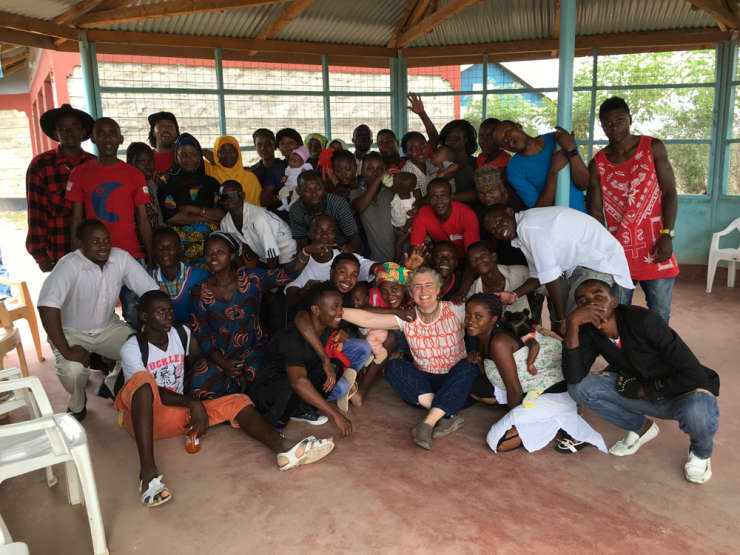
Once we got going, it was amazing. They were an incredible combination of totally open to exercises that I can be jaded about (trust circles, human sculptures) and astonishingly physically gifted. Our warm-ups were often taken from Viewpoints—the first time they jumped and landed (mostly) simultaneously and (mostly) silently, they couldn’t believe it; it was magic.
It was hard not to be able to explicitly connect the dots to explain why we were doing different exercises. I discovered that usually when I teach, I talk a lot. I learned a few words of Swahili, and often told them “Polepole!” (“Slowly!), hoping that if they engaged in what we were doing in a slow and mindful way, its meaning would emerge. Similarly, I dusted off my long-neglected French to encourage them, “Il faut travailler ensemble!” (You have to work together!) to underscore how important it was to pay attention to each other.
I didn’t understand one important aspect of what was happening in my workshop until after it was over. I took for granted that everyone who participated was happy to work with each other. I didn’t know that in Kakuma, people only live with others from their own country and their own tribe (otherwise, the chances of conflict and violence are too high). In my workshop, people from six different countries had the rare opportunity to work, play, lift each other, and make each other fly.
Before we embarked on their final plays they would perform for an audience, I gave them a more modest assignment: a few hours to make a short play about love. I inadvertently stumbled onto a crucial dry run for the final project—an opportunity to assess their level of craft, and what I could help them learn.
Lessons from the short plays about love:
- It is an international theatre challenge right now to make plays that do not involve watching people talk on their cell phones.
- Editing is essential, especially when the plays are not written down and polished. Even more crucial when you are performing outdoors for an audience that can just walk away.
When they started working on their plays for the final presentation, I asked them to think about what stories they really wanted to tell. Most of their theatrical opportunities come from NGOs hiring them to make plays about a particular theme: HIV prevention, hand washing, etc. These are usually included in a larger event whose purpose is educational; the play is the spoonful of sugar to make the lesson easier to swallow. They almost never start with an idea that moves them and work from there. It felt really important to me to give them the rare opportunity to follow their inspiration as artists to tell the story they were fired up about.
I got my own lesson in the ways of international NGOs when I was told a few days after they started working that the funder insisted that at least some of them be about “Health and Protection.” I was heartbroken that I would have to impose any dictates about content. Fortunately, when I asked what their plays were about, I found that one group was focusing on domestic violence. So we were covered.
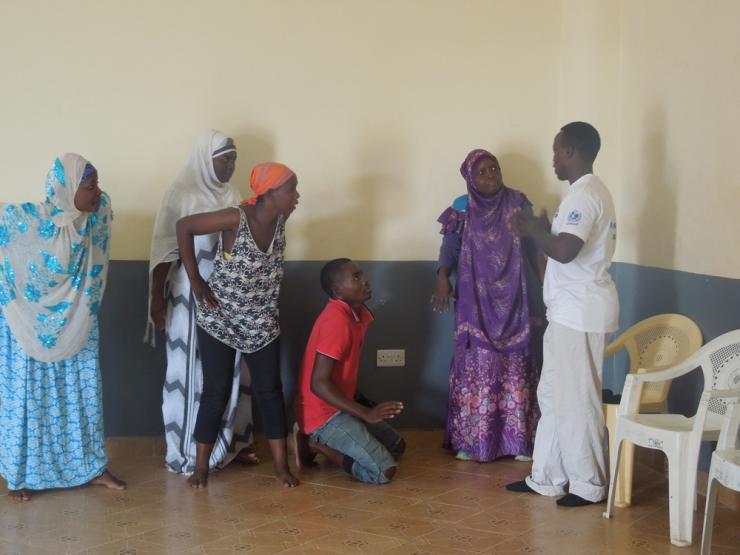
One of the most miraculous parts of the process for me happened when they started rehearsing. Initially, I wasn’t sure what I was going to do while they were working. But as I started visiting their rehearsals, I got another lesson in how theatre transcends language. I was able to watch their plays (which were almost exclusively in Swahili) and give them notes. Of course, there were many things I didn’t understand, but their stories came through enough for me to respond to and give feedback. I’m not sure it even registered to them how astonishing this was—they expected me to have ideas about what they were doing. But it blew me away.
We talked a lot about how to get and keep an audience’s attention. Because they perform outdoors so often, I asked them to start their plays with something that would let people know there was a performance happening. We talked about music and dancing, and about the sword fight from Romeo and Juliet as an attention grabber. I was later told by the leader of one of the theatre groups that these ideas were tricky in this context. In a Somali area of the camp, they couldn’t have music and dancing; in a Sudanese area, a play fight might turn into a real fight with members of the audience joining in. Know your audience.
On the day of the performance, the last thing I said to them before we were supposed to move out to the outdoor performance area was that I guaranteed that something unpredictable was going to happen , something that hadn’t happened in rehearsal. All they could do was work together to keep the story going. Ten minutes later, the skies opened up with a biblical scale rainstorm. Film Aid had showed up with a huge crew to shoot the performance, but instead, everyone was huddled in the room where we had been working, hoping it would stop. The tent that had been set up for audience shade was lifted up and torn apart by the wind. Sadly, it meant that we had to perform indoors, with a much smaller audience than we had wanted. But they were amazing—the plays were smart and funny, the acting was clear and physical, the transitions were tight. The audience laughed and enjoyed themselves. I was so proud of the artists, but much more importantly, they were really proud of themselves.
My experience at Kakuma is so huge that it’s hard to reduce to a few, easy to articulate lessons. But as time has given me perspective, some insights have fallen into place.
It was constantly surprising to me how much joy the participants took in the work that we were doing. Before I got there, I imagined that everyone would be guarded and serious, in keeping with the precarious and difficult nature of their lives in the camp. I couldn’t have been more wrong. My time in Kakuma was a crash course in joy: how it’s not connected to the absence of hardship, how it can emerge almost instantaneously from someone who has seemed to be in the darkest place moments before. The depth and extremes of emotion, the profound, turn-on-a-dime shifts I saw in my workshop felt like how things work in Shakespeare. It’s why his plays feel so true. Most of the time that I was teaching, I lost track of the “research” questions that had sent me there; I was so consumed with making the time worthwhile for my students. But as I’ve returned As You Like It after my time in Kenya, this visceral experience of Shakespearean emotional extremes has cracked the play open for me. Refugees—like all humans—are more than the sum total of bad things they have endured; they laugh, love, focus on trivialities, do stupid things sometimes. Maybe what happens in Kakuma—or Arden—is what happens everywhere.
Maybe the experiences of joy and beauty that happened in my workshop are the meaning. And maybe making meaning is a fundamentally ephemeral, transitory thing.
I’ve been thinking a lot about meaning. About whether what I did there means anything, especially in light of the depth of the need, the desperation of the circumstances. I’ve been reading the Irish poet John O’Donohue, who talks about beauty as “that in the presence of which we feel more alive,” and the special importance of beauty for people “who hold out on frontiers of awful want and awful situations and manage somehow to go beyond the given impoverishments and offer gifts of possibility and imagination and seeing.” And I start to feel like maybe the experiences of joy and beauty that happened in my workshop are the meaning. And that maybe making meaning is a fundamentally ephemeral, transitory thing. You make meaning in the moment you are living in right now, and maybe that’s all you can reasonably hope for. And if you’re lucky, maybe the memory, the residue of that experience has the potential to be a source of sustenance when things really suck.
I’ve also been thinking a lot about stories, and how important they are. It’s become a cliché to say that stories are what make us human, but maybe it’s really true. Maybe one of the reasons that the people in my workshop are thriving more than many in Kakuma is that they are finding ways to tell stories. In my world, it can feel like stories in the theatre are a very rarified thing, only accessible to a very select group, only told by a very select group. I realize how deeply this feeling compromises my belief in the value of the whole project of being a theatre artist. I start to feel that theatre (and by extension, storytelling in general) is a luxury, something that people who can afford it use as a diversion or distraction. It makes the whole enterprise feel trivial—makes me wonder why do it, especially when the world seems to be falling apart in so many ways. But I think— I hope—my time in Kakuma may help me remember the deeper importance of stories and the value of using them to bring people together.
I still struggle with the reality of my life at home, knowing first hand how many people I care about—and so many thousands more—are living in desperate straits on the other side of the planet, as well as millions more in Greece, Turkey, Jordan, Thailand, etc. etc. And feeling like I’m not sure how anything I do can matter in the face of it all.
But I do have a lived experience of connection with the people I worked with in Kakuma that is also real. And I know that, for a moment at least, it brought all of us meaning and joy.

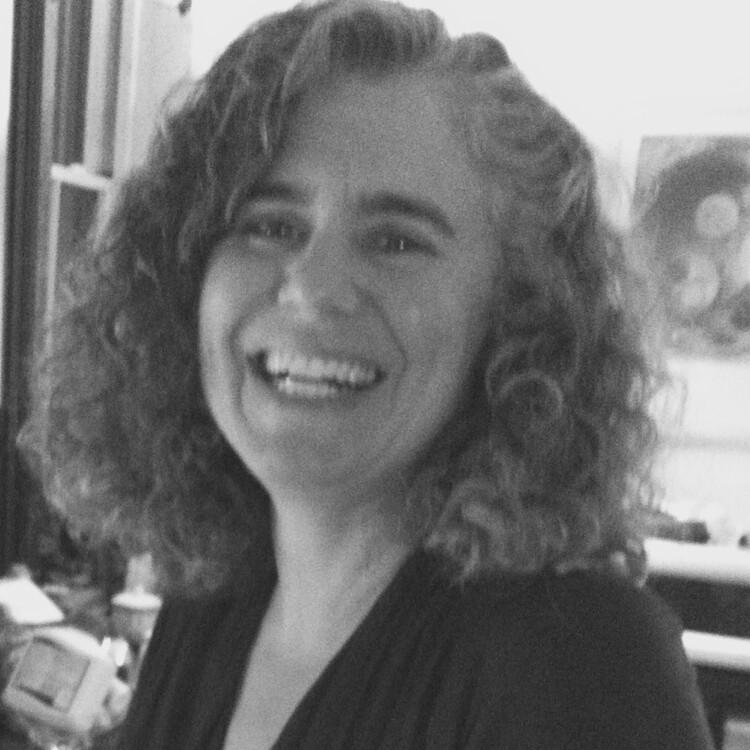
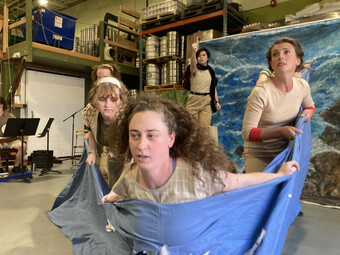

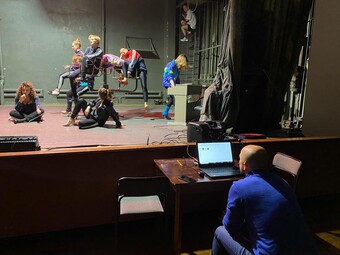


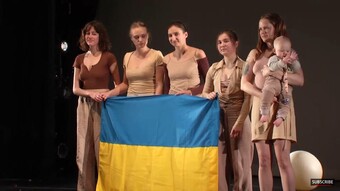

Comments
The article is just the start of the conversation—we want to know what you think about this subject, too! HowlRound is a space for knowledge-sharing, and we welcome spirited, thoughtful, and on-topic dialogue. Find our full comments policy here
My name is Rachael and I am volunteering in a refugee camp in northern greece this summer and I am spear-heading the theatre project, mostly with the children and some young adults. I would love to get your input and advice on how to approach the language barrier and what specific exercises are good for warm-ups and other fun activities. Please email me if you see this at [email protected]